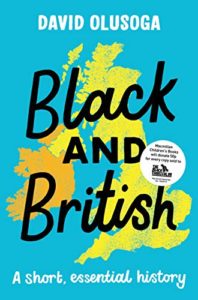


It is for this reason that Olusoga includes the travels and travails of the 18th-century Black Loyalists, enslaved Africans who had fought for the crown against American independence and then found their way to Britain, Canada and eventually also to Sierra Leone.

Britain’s great homes, its financial system, its major ports and textile industry were all based on the enslavement of African men, women and children. In the 18th century there was an obvious connection between the transportation of Africans to North America and the Caribbean and the thousands of Africans who resided in Britain, some of whom were also evidently slaves. But it is impossible to understand the industrial revolution, the creation of Sierra Leone, the use of the guinea and much else besides unless Britain’s history is presented in its entirety. It is perhaps not surprising that, when describing the centuries of imperial expansion, historians have underplayed the fact that Britain then led the world in human trafficking. Indeed, he argues that black British history is not just about black people but about encounters between blacks and whites, including intermarriage or the ‘mixed relationships’ that have been commented on since Elizabethan times.īut he is certainly at pains to remind us of Britain’s links with enslavement and empire, with Africa, the Caribbean and the Americas. He also demonstrates that Africans were often a central part of Britain’s history centuries before the empire, going back to the Roman period and beyond. Olusoga reminds us that Britain’s ‘island story’ cannot be understood in isolation from the rest of the world and certainly not from Africa and other parts of what was once the British empire. Why it should be forgotten, and who might have forgotten it should give us all pause for reflection, since the denial of black British history by those who should know better could be considered tantamount to racism. The book and the four-part series give some indication of the extent of a history which David Olusoga presents as ‘forgotten’: the subject, he argues, has been largely excluded from the mainstream narrative of British history. I have been researching and writing about black British history for over 30 years but never before have I been fortunate enough to review a 600-page book on the subject, published to accompany a recent major BBC documentary.


 0 kommentar(er)
0 kommentar(er)
